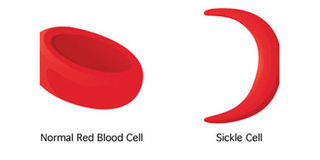Prime
Abdominal conditions in sickle cell patients

What can I do to reduce a protruded tummy in a sickle cell patient? – Juliet
Dear Juliet,
Sickle cell anaemia is an inherited disease that leads to red blood cells under certain conditions assuming a sickle shape hence getting trapped in blood vessels, blocking blood flow and causing pain.
Many Ugandans think that everyone with sickle cell anaemia should have long, thin arms and legs, a big head and big tummy but many sufferers may look normal.
Sometimes, however, sickle cell anaemia may lead to a big painful tummy because of blood being trapped in the spleen (sequestration) causing an enlarged spleen and abdomen.
This that mainly happens in children below five years of age is a medical emergency requiring emergency treatment that may include blood transfusion and removal of the spleen. A big tummy may also result from a gaseous tummy due to gall stones common in sickle cell anaemia sufferers.
Some people with sickle cell anaemia may have a pot belly due to other issues including obesity that may require addressing according to its cause.
One with sickle cell anaemia, if obese, requires a suitable diet (little amounts, free of red meat, fried foods and butter) regular exercise, which do not necessarily have to target the tummy, but full body workouts as advised by the doctor.
Sickle cell anaemia is a stressful chronic condition which can make one find solace in eating food ending up with a big stomach.
Stress is known to increase levels of stress hormone cortisol renowned for increasing appetite for “comfort” foods that are mainly sugary and fatty, risking a pot belly (abdominal obesity)
This, therefore, means that one with sickle cell anaemia requires to properly manage stress, failure of which, counselling periodically may be required.




